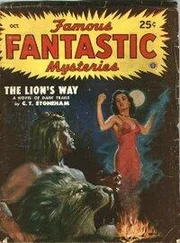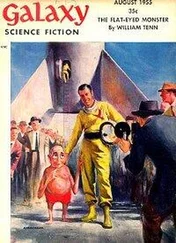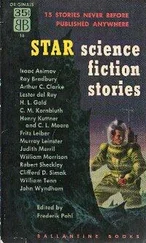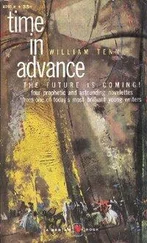William Tenn - The Discovery of Morniel Mathaway
Здесь есть возможность читать онлайн «William Tenn - The Discovery of Morniel Mathaway» весь текст электронной книги совершенно бесплатно (целиком полную версию без сокращений). В некоторых случаях можно слушать аудио, скачать через торрент в формате fb2 и присутствует краткое содержание. Год выпуска: 1955, Издательство: Galaxy Publishing Corporation, Жанр: Фантастика и фэнтези, на английском языке. Описание произведения, (предисловие) а так же отзывы посетителей доступны на портале библиотеки ЛибКат.
- Название:The Discovery of Morniel Mathaway
- Автор:
- Издательство:Galaxy Publishing Corporation
- Жанр:
- Год:1955
- ISBN:нет данных
- Рейтинг книги:5 / 5. Голосов: 1
-
Избранное:Добавить в избранное
- Отзывы:
-
Ваша оценка:
- 100
- 1
- 2
- 3
- 4
- 5
The Discovery of Morniel Mathaway: краткое содержание, описание и аннотация
Предлагаем к чтению аннотацию, описание, краткое содержание или предисловие (зависит от того, что написал сам автор книги «The Discovery of Morniel Mathaway»). Если вы не нашли необходимую информацию о книге — напишите в комментариях, мы постараемся отыскать её.
The Discovery of Morniel Mathaway — читать онлайн бесплатно полную книгу (весь текст) целиком
Ниже представлен текст книги, разбитый по страницам. Система сохранения места последней прочитанной страницы, позволяет с удобством читать онлайн бесплатно книгу «The Discovery of Morniel Mathaway», без необходимости каждый раз заново искать на чём Вы остановились. Поставьте закладку, и сможете в любой момент перейти на страницу, на которой закончили чтение.
Интервал:
Закладка:
The Discovery of Morniel Mathaway
by William Tenn
Everyone is astonished at the change in Morniel Mathaway since he was discovered, everyone but me. They remember him as an unbathed and untalented Greenwich Village painter who began almost every second sentence with “I” and ended every third one with “me.” He had all the pushing, half-frightened conceit of the man who secretly suspects himself to be a second-rater or worse, and any half-hour conversation with him made your ears droop with the boastful yells he threw at them.
I understand the change in him, the soft-spoken self-depreciation as well as the sudden overwhelming success. But then, I was there the day he was “discovered”—except that isn’t the right way to put it. To tell you the truth, I don’t know how to put it really, considering the absolute impossibility—yes, I said impossibility, not improbability—of the whole business. All I know for sure is that trying to make sense out of it gives me belly-yammers and the biggest headache this side of calculus.
We were talking about his discovery that day. I was sitting, carefully balanced, on the one wooden chair in his cold little Bleecker Street studio, because I was too sophisticated to sit in the easy chair.
Morniel practically paid the rent on his studio with that easy chair. It was a broken-down tangle of filthy upholstery that was high in the front of the seat and very low in the back. When you sat in it, things began sliding out of your pockets—loose change, keys, wallets, anything—and into the jungle of rusty springs and rotting wood-work below.
Whenever newcomers came to the place, Morniel would make a big fuss about showing them to “the comfortable chair.” And as they twisted about painfully trying to find a spot between the springs, his eyes would gleam and he’d get all lit up with good cheer. Because the more they moved about, the more would fall out of their pockets.
After a party, he’d take the chair apart and start counting the receipts, like a store owner hitting the cash register the evening after a fire sale.
The only trouble was, to sit in the wooden chair, you had to concentrate, since it teetered.
Morniel couldn’t lose—he always sat on the bed.
“I can’t wait for the day,” he was saying, “when some dealer, some critic, with an ounce of brain in his head sees my work. I can’t miss, Dave, I know I can’t miss; I’m just too good. Sometimes I get frightened at how good I am—it’s almost too much talent for one man.”
“Well,” I said, “there’s always the—”
“Not that it’s too much talent for me,” he went on, fearful that I might have misunderstood him. “I’m big enough to carry it, fortunately; I’m large enough of soul. But another, lesser guy would be destroyed by this much totality of perception, this comprehension of the spiritual gestalt as I like to put it. His mind would just crack wide open under the load. Not me, though, Dave, not me.”
“Good,” I said. “Glad to hear it. Now if you don’t m—”
“Do you know what I was thinking about this morning?”
“No,” I said. “But, to tell you the truth, I don’t really—”
“I was thinking about Picasso, Dave. Picasso and Roualt. I’d just gone for a walk through the pushcart area to have my breakfast—you know, the old the-hand-is-quicker-than-the-eye Morniel—and I started to think about the state of modern painting. I think about that a lot, Dave. It troubles me.”
“You do?” I said. “Well, I tend to—”
“I walked down Bleecker Street, then I swung into Washington Square Park, and while I walked, I was thinking: Who is doing really important work in painting today who is really and unquestionably great? I could think of only three names: Picasso, Roualt—and me. There’s nobody else doing anything worthwhile and original nowadays. Just three names out of the whole host of people painting all over the world at this moment: just three names, no more. It made me feel very lonely, Dave.”
“I can see that,” I said. “But then, you—”
“And then I asked myself, why is this so? Has absolute genius always been so rare, is there an essential statistical limitation on it in every period, or is there another reason, peculiar to our own time. And why has my impending discovery been delayed so long? I thought about it for a long time, Dave. I thought about it humbly, carefully, because it’s an important question. And this is the answer I came up with.”
I gave up. I just sat back in my chair—not too far back, of course—and listened to him expound a theory of esthetics I’d heard at least a dozen times before, from a dozen other painters in the Village. The only point of difference between them was on the question of exactly who was the culmination and the most perfect living example of this esthetic. Morniel, you will probably not be amazed to learn, felt it was himself.
He’d come to New York from Pittsburgh, Pennsylvania, a tall, awkward boy who didn’t like to shave and believed he could paint. In those days, he admired Gauguin and tried to imitate him on canvas; he’d talk for hours, in the accents that sound like movie Brooklyncse, but are actually pure Pittsburgh, about the mystique of folk simplicity.
He got off the Gauguin kick fast, once he’d taken a few courses at the Art Students League and grown his first straggly blond beard. Recently, he had developed his own technique which he called smudge-on-smudge.
He was bad, and there were no two ways about it. I say that not only from my opinion—and I’ve roomed with two modern painters and been married for a year to another—but from the opinions of pretty knowing people who, having no personal axe to grind, looked his work over carefully.
One of them, a fine critic of modern art, said after staring slack-jawed at a painting which Morniel had insisted on giving me and which, in spite of my protests, he had personally hung over my fireplace: “It’s not just that he doesn’t say anything of any significance, graphically, but he doesn’t even set himself what you might call painterly problems. White-on-white smudge-on-smudge, non-objectivism, neo-abstractionism, call it what you like, there’s nothing there, nothing! He’s just another of these loudmouth, frowzy, frustrated dilettantes that infest the Village.”
So why did I spend time with Morniel? Well, he lived right around the corner. He was slightly colorful, in his own sick way. And when I’d sat up all night, trying to work on a poem that simply wouldn’t be worked, I often felt it would be relaxing to drift around to his studio for a spot of conversation that wouldn’t have anything to do with literature.
The only trouble—and the thing I always forgot—was that it almost never was a conversation. It was a monologue that I barely managed to break in on from time to time.
You see, the difference between us was that I’d been published, even if it was only in badly printed experimental magazines that paid off in subscriptions. He’d never been exhibited—not once.
There was another reason for my maintaining a friendly relationship with the man. And that had to do with the one talent he really had.
I barely get by, so far as living expenses are concerned. Things like good paper to write on, fine books for my library, are stuff I yearn for all the time, but are way out of my reach financially. When the yearning gets too great—for a newly published collection by Wallace Stevens, for example—I meander over to Morniel’s and tell him about it.
Then we go out to the bookstore—entering it separately. I start a conversation with the proprietor about some very expensive, out-of-print item that I’m thinking of ordering and, once I’ve got all of his attention, Morniel snaffles the Stevens—which I intend to pay for, of course, as soon as I’m a little ahead.
Читать дальшеИнтервал:
Закладка:
Похожие книги на «The Discovery of Morniel Mathaway»
Представляем Вашему вниманию похожие книги на «The Discovery of Morniel Mathaway» списком для выбора. Мы отобрали схожую по названию и смыслу литературу в надежде предоставить читателям больше вариантов отыскать новые, интересные, ещё непрочитанные произведения.
Обсуждение, отзывы о книге «The Discovery of Morniel Mathaway» и просто собственные мнения читателей. Оставьте ваши комментарии, напишите, что Вы думаете о произведении, его смысле или главных героях. Укажите что конкретно понравилось, а что нет, и почему Вы так считаете.












